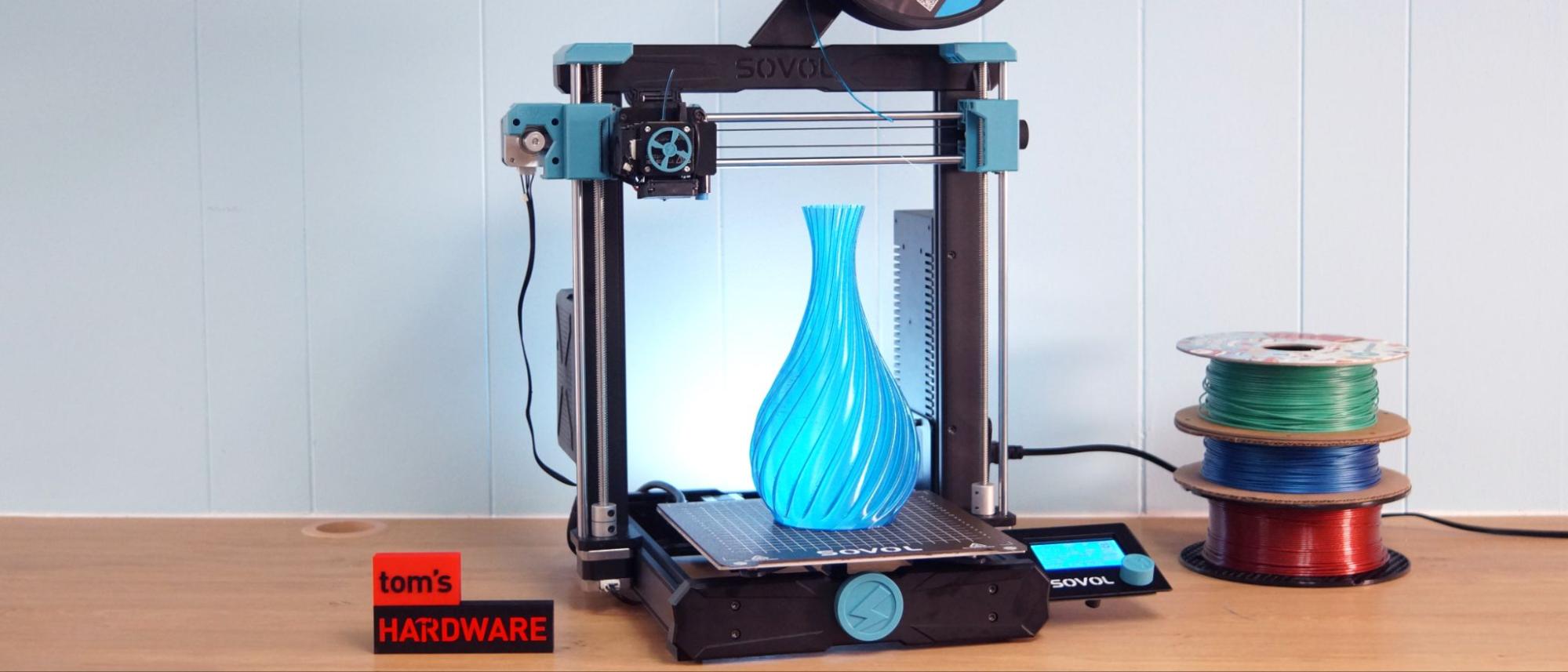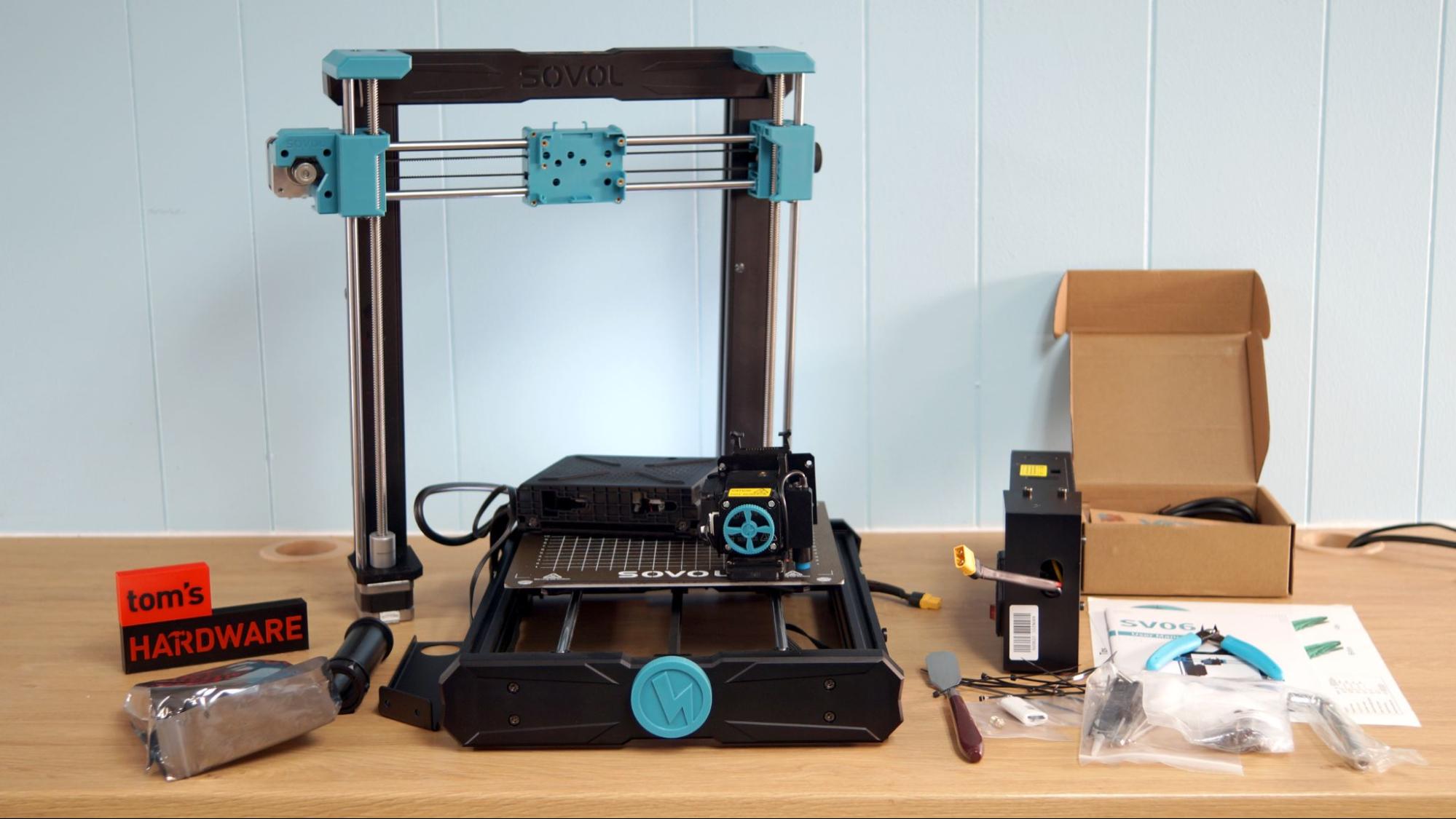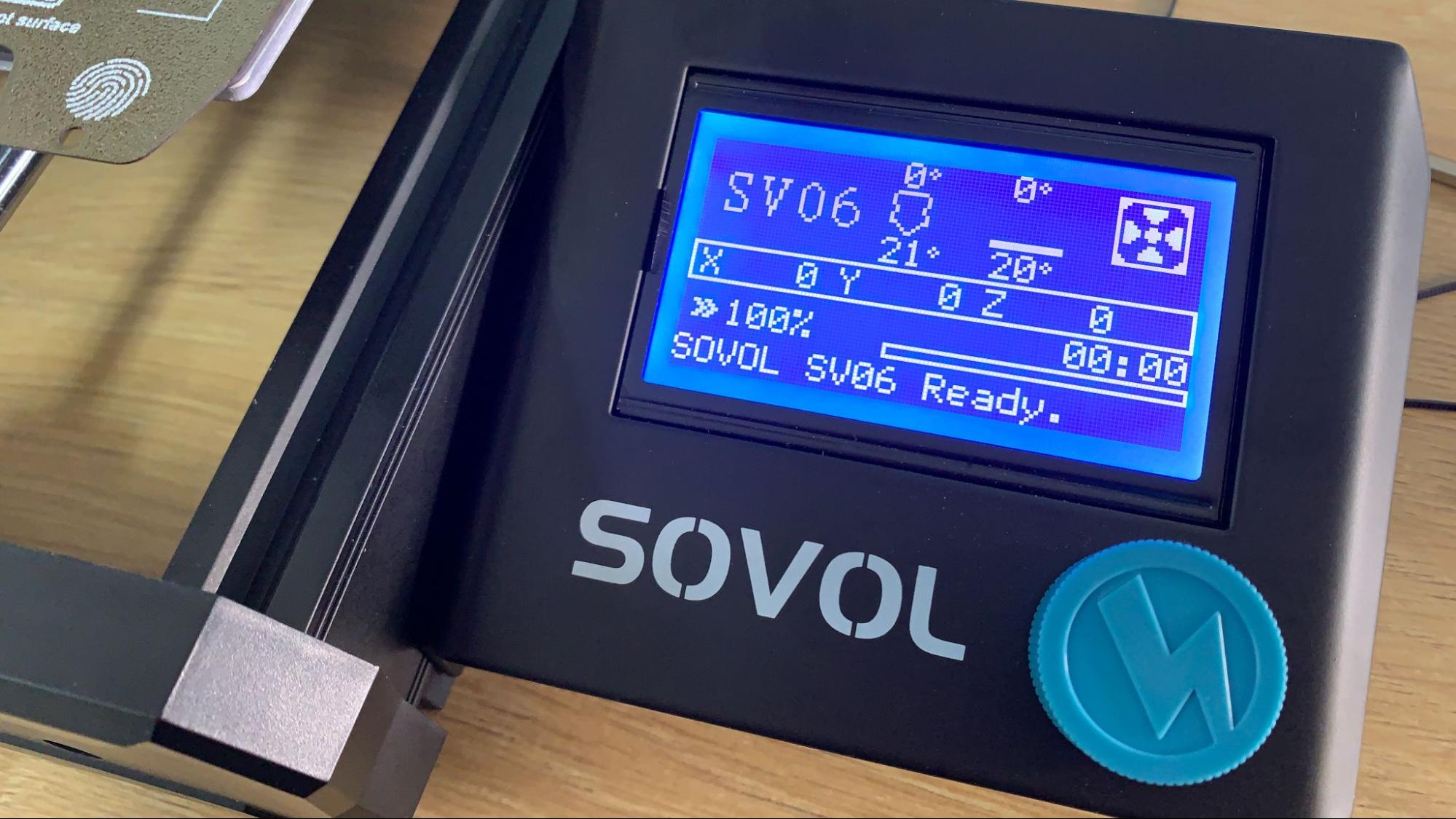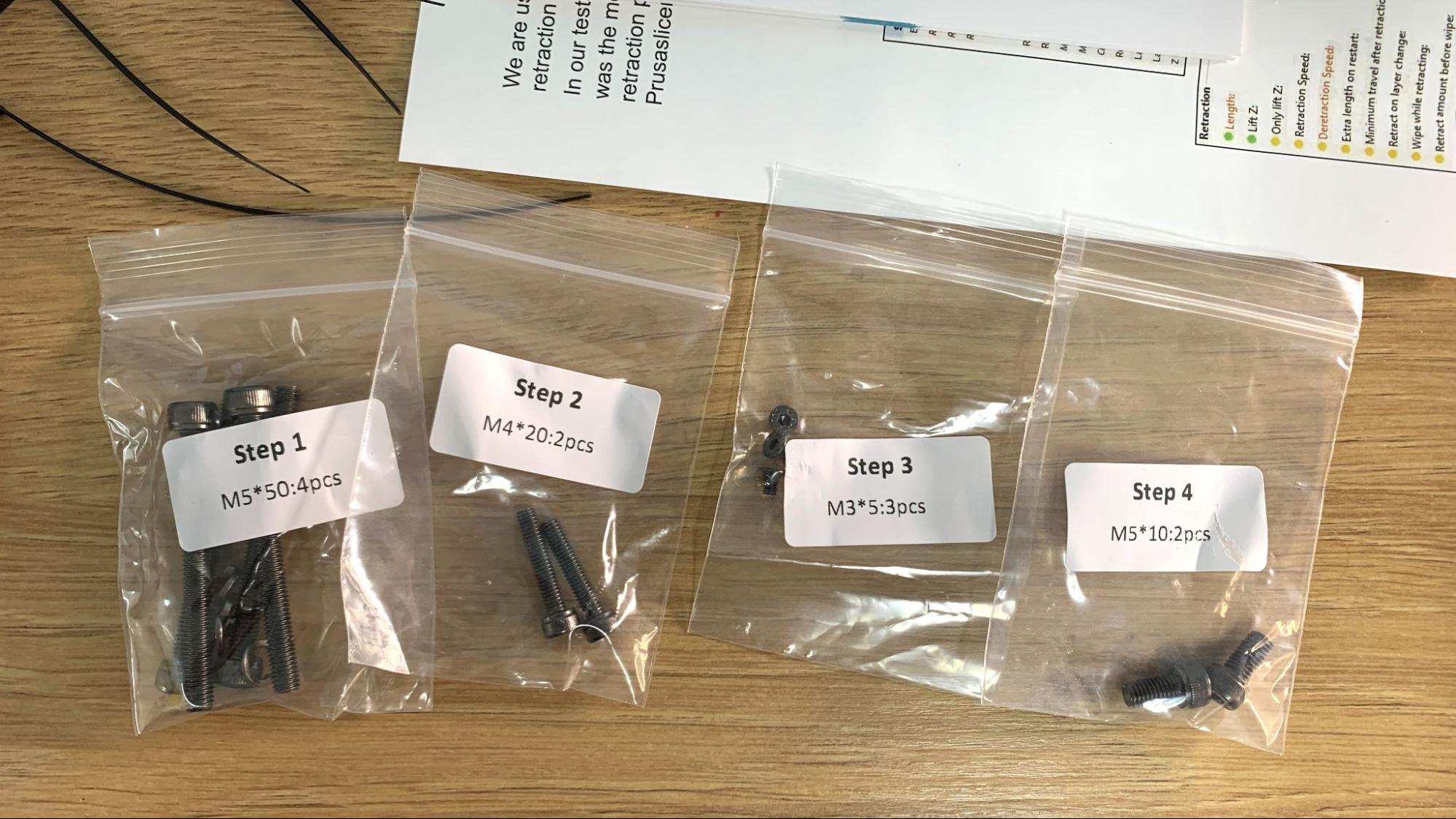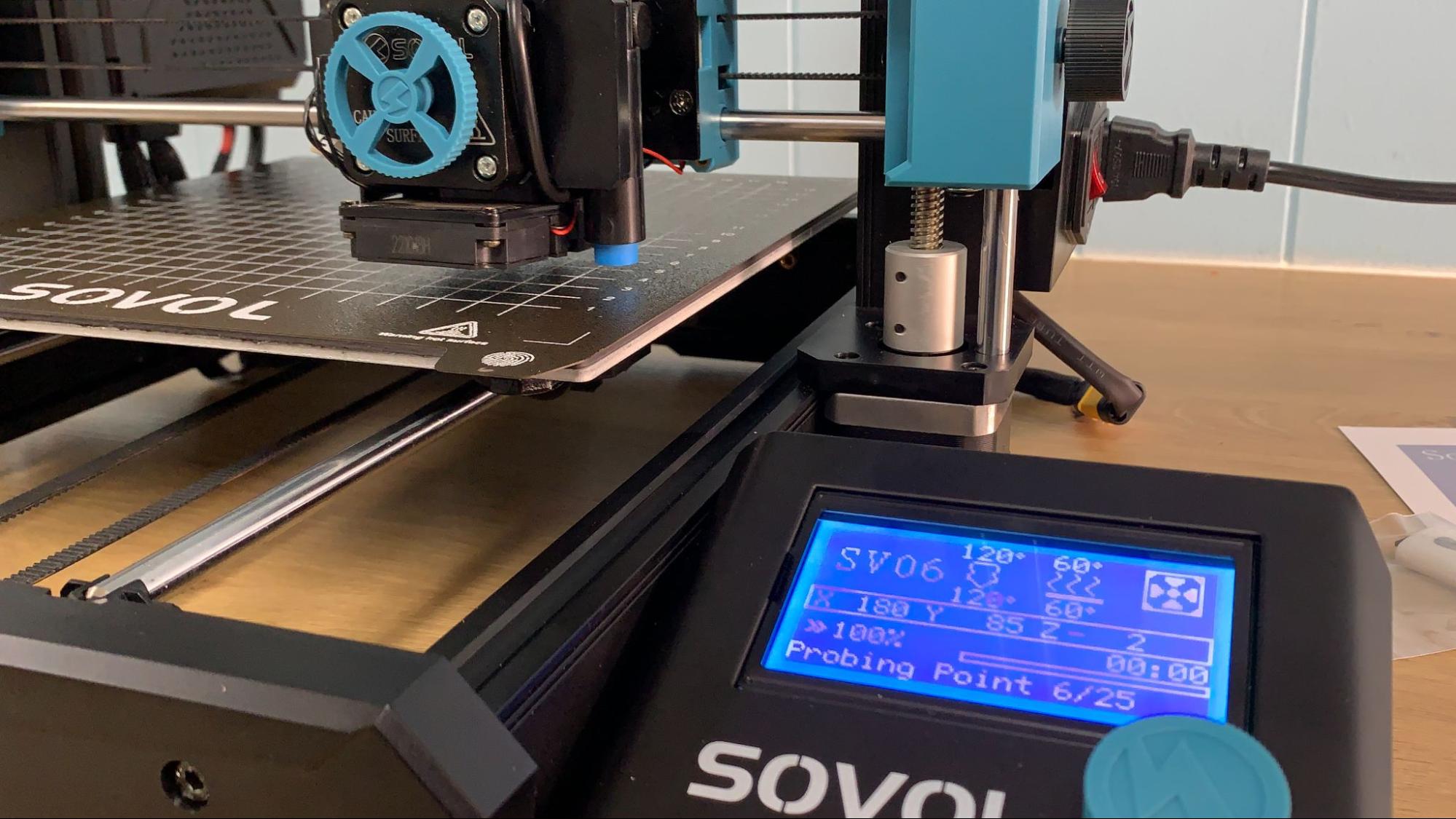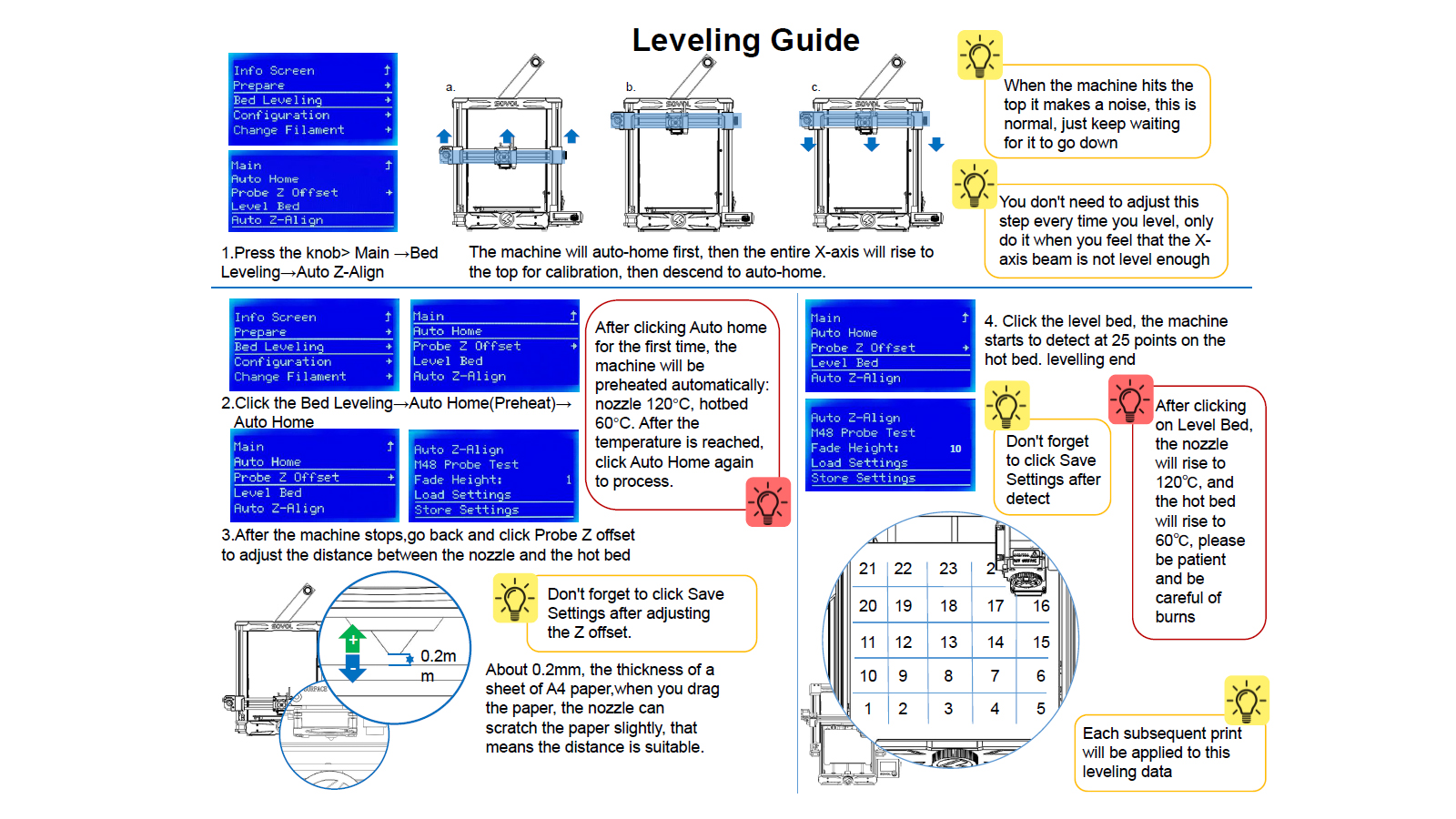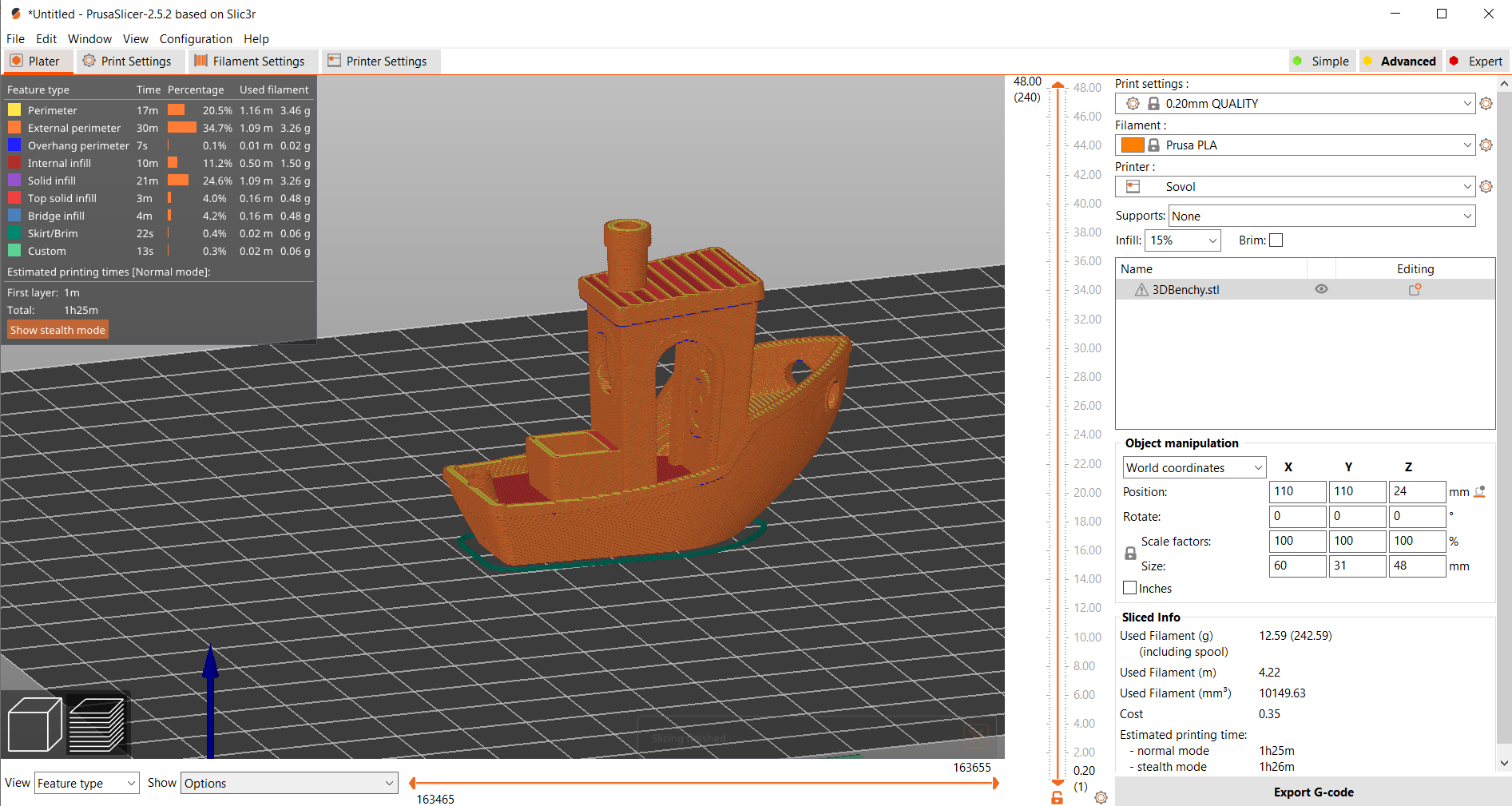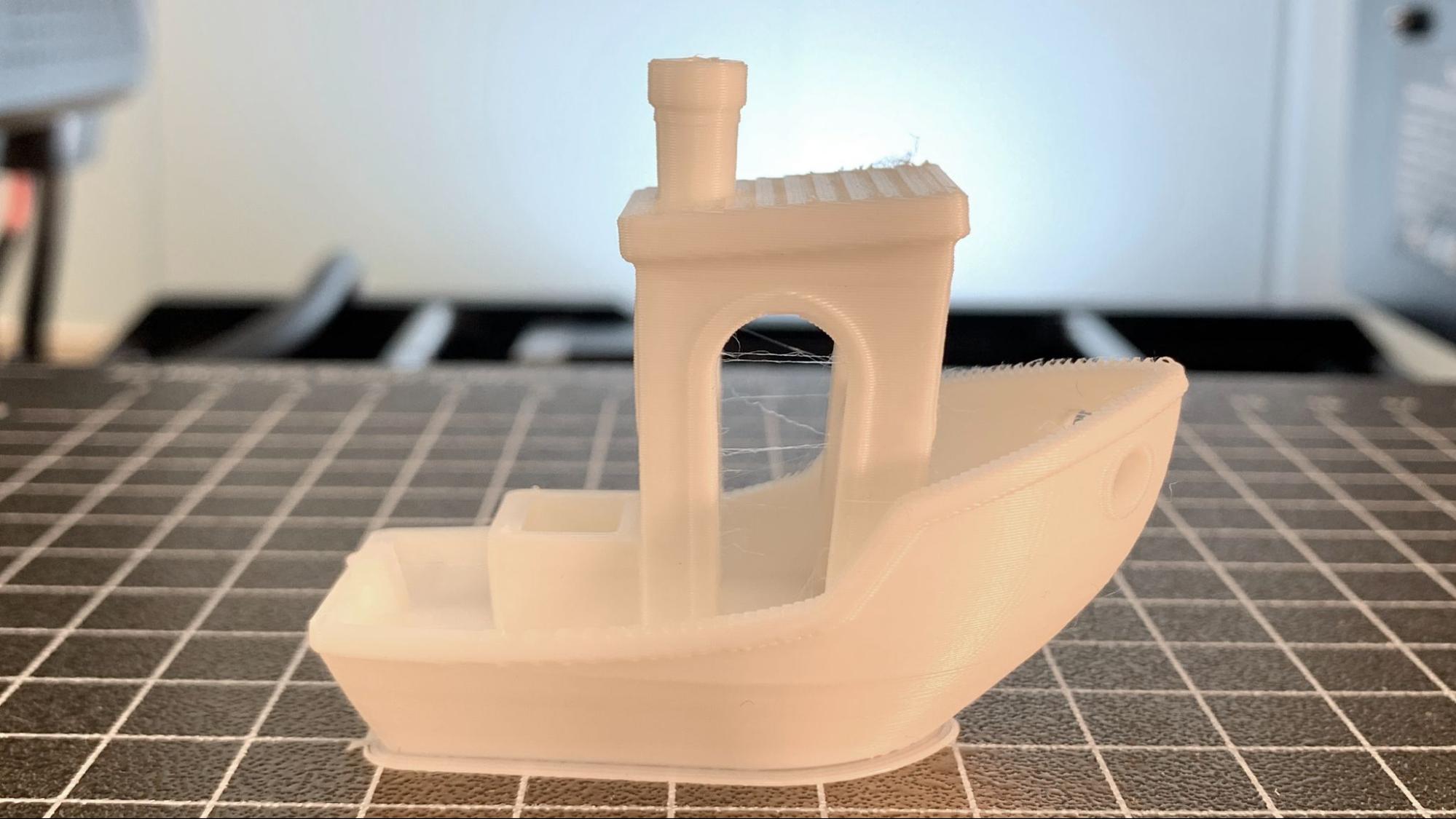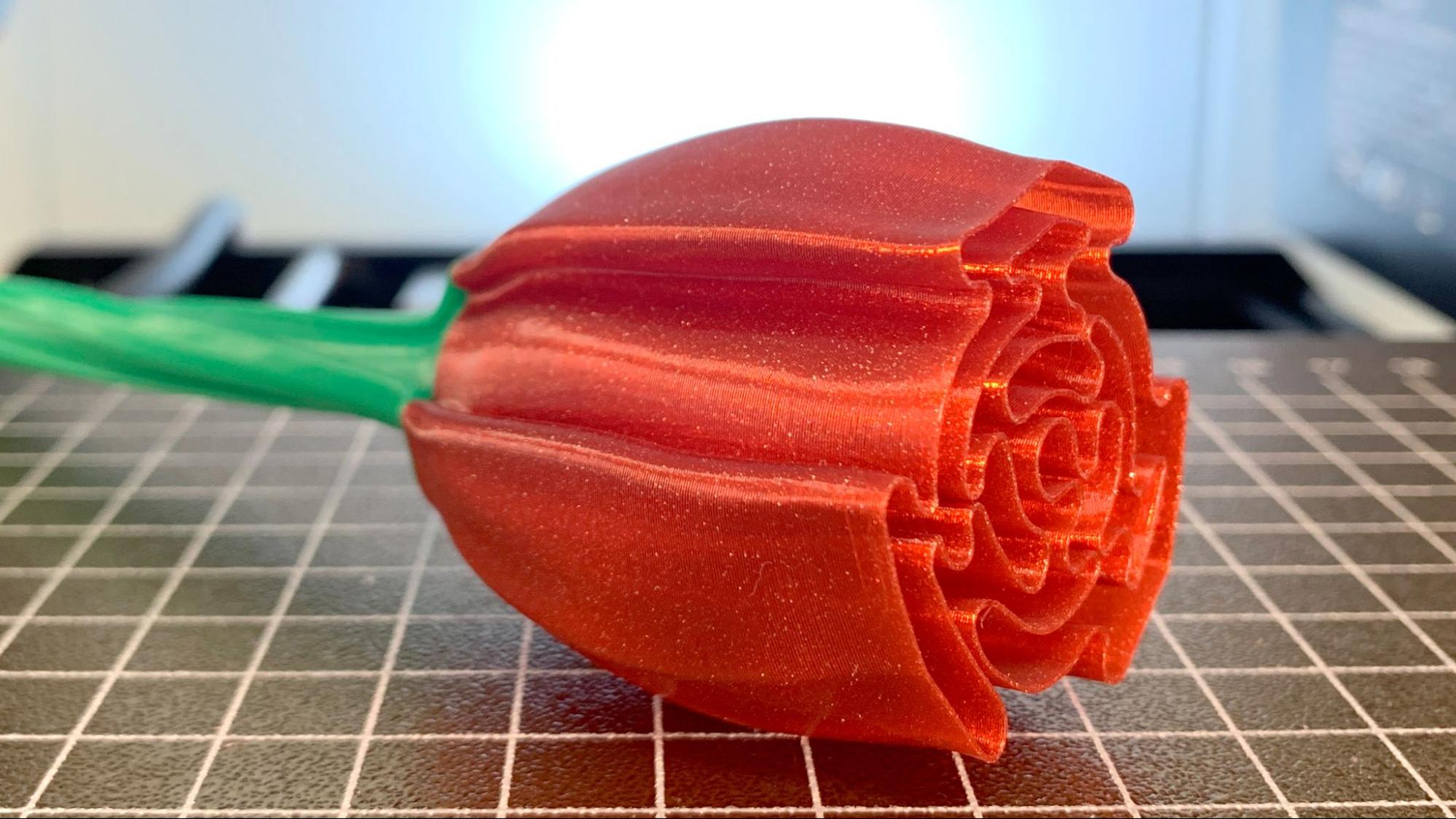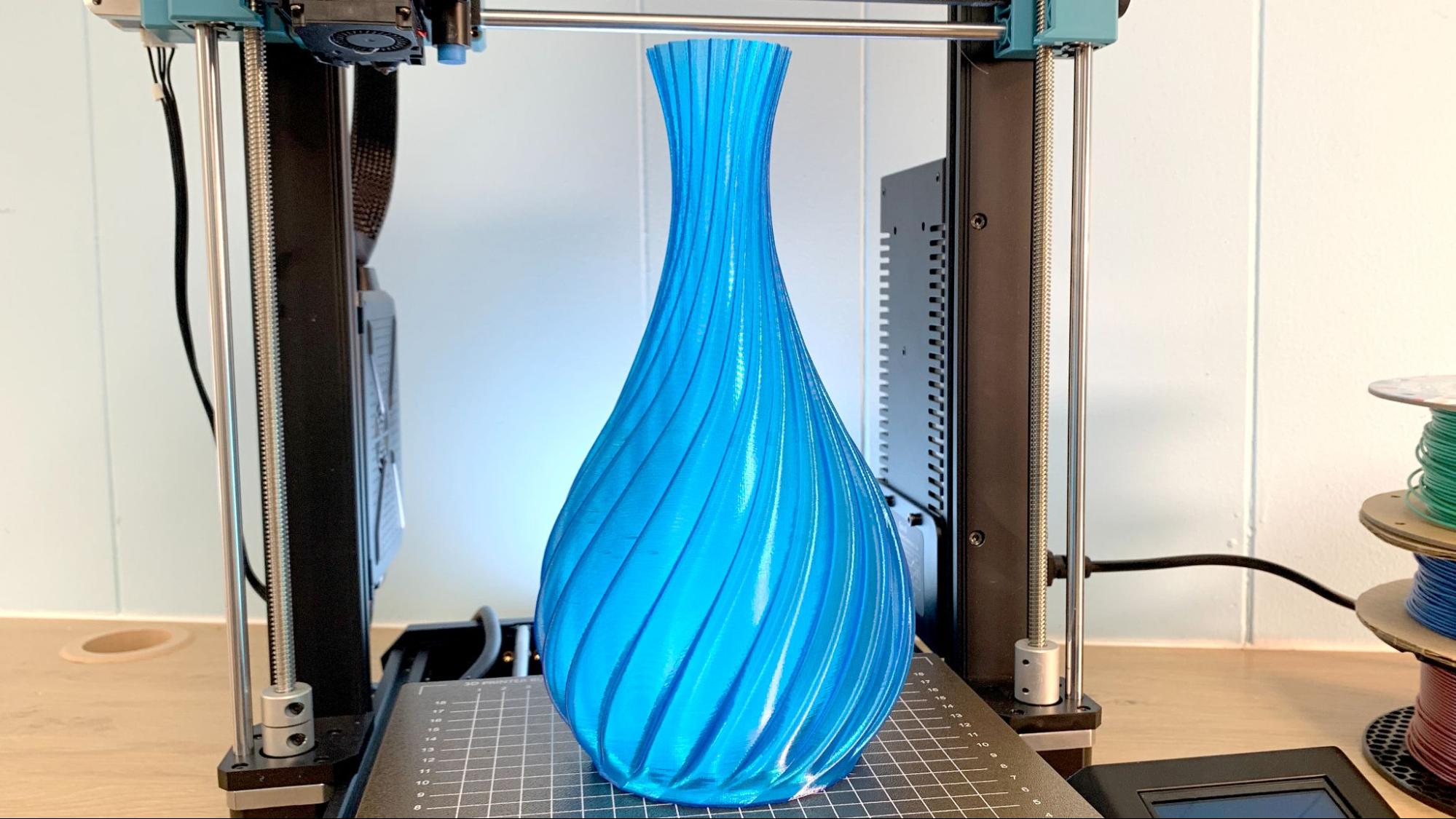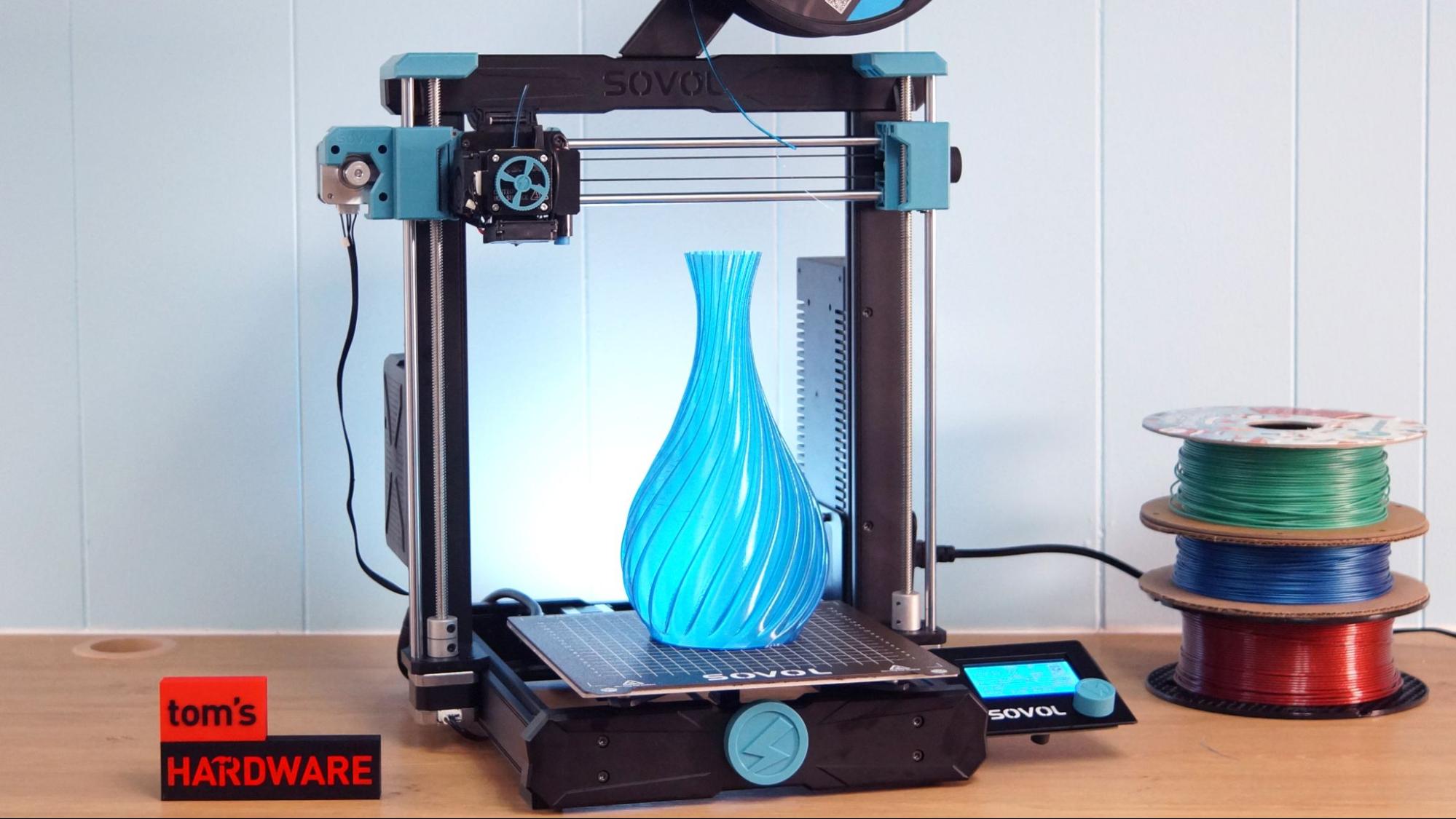Tom's Hardware Verdict
Sovol’s SV06 is a budget friendly 3D printer that borrows heavily from Prusa’s i3 open source design. It’s a solid machine with quality prints, but a bit slow in today’s race for speed.
Pros
- +
Direct drive
- +
Linear rods
- +
Auto bed leveling
- +
All metal hotend
- +
Inexpensive
Cons
- -
Slow
- -
Dated UI
Why you can trust Tom's Hardware
When Sovol launched their SV06 it was called a Prusa slayer – a clone that mimicked the industry’s OG bed slinger at a fraction of the cost. Of course that was before the release of the more advanced Prusa MK4. Where does that leave the SV06 now?
Actually, the SV06 remains a decent, affordable, entry level printer. It’s a mash-up of Prusa’s Open Source i3 printer with bits of Creality tech thrown in for good measure. It’s not too surprising, as Sovol was built on sourcing parts from their neighbor Creality. And it’s actually an honored tradition among 3D printing companies to borrow – and build upon – each other’s Open Source hardware. The only catch is you have to site your sources and put your files out there too.
Retailing at $299, and currently on sale for $249, the Sovol SV06 demonstrates that budget printers can still be well-made. It’s a very good printer, but not quite one of the best 3D printers we tested at this price.
Specifications: Sovol SV06
| Build Volume | 220 x 220 x 250 mm (8.6 x 8.6 x 9.84 in) |
| Material | PLA/PETG/TPU/ABS (up to 300 degrees) |
| Extruder Type | Direct drive |
| Nozzle | .4mm (MK8) |
| Build Platform | PEI spring steel flex plate |
| Bed Leveling | Automatic |
| Filament Runout Sensor | No |
| Connectivity | USB drive |
| Interface | LCD screen with knob |
| Machine Footprint | 497 x 388 x 611 mm (19.5 x15.2 x 24in) |
| Machine Weight | 9 KG (19.8lbs) |
Sovol SV06: Included in the Box
The Sovol SV06 comes with everything you need to get your printer set up. You get tools to build and maintain the printer, side cutters, a plastic scraper, a spare nozzle, and a microSD card with a USB adapter. There’s also a small sample of white PLA to print your first model.
You also get a PDF copy of the manual, a copy of Sovol Cura and a sample model in both pre-sliced .gcode and .stl format. There’s also a very helpful video to help you assemble your machine.
Design of the Sovol SV06
The Sovol SV06 claims to be a tribute to the whole RepRap movement, but it’s obviously a Prusa MK3 clone. And that’s ok, because it follows the rules of the Open Source community by keeping the SV06 Open Source too. Open Source is a policy whereby companies grow together by sharing their innovations.
The machine has the classic i3 lines in Sovol’s turquoise blue. The plastic parts are injection molded, rather than 3D printed, so there’s no farm of SV06 printers churning out their brethren. It has a few Ender style parts: a square 220 x 220 bed and old Ender 3 type screen. But it also has a powerful planetary drive extruder and an all metal hotend.
Get Tom's Hardware's best news and in-depth reviews, straight to your inbox.
Bed leveling is automatic, with no manual adjustments. The SV06 uses an inductive sensor to probe the metal surface of the print bed. It’s not quite as accurate as systems that physically tap the bed, but at least there’s no moving parts to wear out or break.
It does another old school i3 trick – sensorless homing and auto aligning the Z axis by tapping the X gantry against the highest point of the frame. It’s a bit noisy – and even scary if you’re not expecting it – but it's a cheap method of keeping parts in alignment.
Instead of V slot wheels, the SV06 has linear rods with bearings on both the X and Y axis. Linear rods are low maintenance, and should last much longer than rubber wheels. They’re also more precise and smooth, and offer stable support to the printer.
The menu system is also a throwback to old school printers, which feels a bit dated. It’s the same text heavy style used on the Ender 3 Pro and the MK3. They could have easily updated this part with a touchscreen and menu borrowed from the Sovol SV01.
The SV06 isn’t a speedy printer, but it is compatible with Klipper should you want to explore that option. YouTuber The Next Layer has instructions on connecting the SV06 to a Creality Sonic Pad if you want to try it.
Assembling the Sovol SV06
The Sovol SV06 requires a tad bit more assembling than printers we’ve reviewed recently. There’s a helpful video to walk you through set up if you’ve not put a 3d printer together before.
You’ll need to attach the gantry to the base with bolts, then screw the power supply to the gantry, and screw the extruder to its pre-mounted plate. The screen will need to be plugged in and screwed onto the frame. Wires are well labeled, and the whole thing will take about 25 minutes.
Once you get it together, take a moment to check the belts and eccentric nuts for tightness. The belts have adjustment knobs to make this step very simple.
Leveling the Sovol SV06
The Sovol SV06 comes with a complete leveling guide to ensure you go through the steps in the right order. The SV06 is using a retro method of leveling that’s most likely pulled from the now 6-year-old Prusa MK3.
First you align the Z axis, which raises the X axis to the top of the gantry and physically bumps it to align both sides.
Then you can click Bed Leveling, and auto home. It will heat up to 120 C on the nozzle and 60 C on the bed. Next, you click Probe Z offset to set the Z height with a sheet of paper. Adjust the nozzle so it just scrapes the paper, and click Store Settings.
Now you’re ready to probe the bed. Click Level Bed and the machine will probe 25 points in a grid across the build plate. Click save and you’re done. The SV06 will save this data and apply it to every print without the need to remeasure the surface.
Loading Filament on the Sovol SV06
Loading filament is also old school, with no pre-programmed system. You’ll need to click Prepare, then Preheat PLA or ABS. Wait for it to hit the target temperature, then trim the filament to a 45-degree angle and push it into the feed port on top of the extruder. Turn the wheel on the front of the extruder to advance the filament until it comes out of the nozzle.
Reverse the process to change colors or remove the filament.
Preparing Files / Software for Sovol SV06
Sovol included a copy of Sovol Cura, which is a reskinned copy of UltiMaker Cura. It’s handy if this is your first printer and don’t want to look for the more up to date – and free – download at UltiMaker. A profile for the SV06 is available on both versions.
If you want to give your Prusa Clone a go with PrusaSlicer (also free) you’ll need to make a slight modification to a MK3 profile. Open PrusaSlicer, start the Configuration Wizard. Select Prusa FFF, then pick the MK3S and a .4 nozzle. Click finish. Now, find the Printer Setting tab and change the bed shape to 220 x 220 and bed height to 250. Click the Save Icon and change the name to Sovol.
For my test prints, I use PrusaSlicer.
Printing on the Sovol SV06
The Sovol SV06 comes with a sample coil of white PLA, which I used to print this fairly dull Benchy. The print is hard to examine in white, but you can see that it is nice and smooth with a bit of stringing in the cabin. If you want more colors and materials like silks and multicolor filaments, you should check out our guide to the best filaments for 3D printing for suggestions.
Sunny weather had me thinking about flowers, and Bugman_140 recently came out with a really nice vase mode tulip design that only takes moments to print. I used sparkling Carmine Red Prusament PETG for the flowers and Inland Green PETG for the stems. These printed perfectly smooth and popped right off the textured PEI bed without me needing to prep with a glue stick. Prints took a combined 1 hour and 18 minutes to print at a .28 mm layer height and 50mm/s speed in Vase Mode.
My new flowers needed a vase, so I grabbed this classic spiral vase mode vase from Kazi Toad. Since the vessel is for plastic flowers rather than real ones, I didn’t need to worry if the vase is actually water tight. This is printed in purple Build Series TPU from Matterhackers, which makes for an unbreakable container that still has sparkle. TPU didn’t give the Sovol 06 any trouble at all, though I did run it at a stately 30mm/s. It turned out smooth and no blemishes in 2 hours and 47 minutes with a .28 layer height and vase mode.
Bottom Line
The Sovol SV06 is a perfect printer for makers who want reliability at an affordable price. Its old school menu options may be a bit overwhelming for beginners and younger operators, but it's well worth the effort to figure out. It’s an Open Source machine, which make finding replacement parts easy and gives you the option to print your own upgrades.
The SV06 may not be as impressive now that the Prusa MK4 has launched. It’s certainly not a fast machine, but it is compatible with Klipper if you want to take on the challenge. What it does offer are quality prints thanks to excellent design, smooth linear rods, auto bed leveling and a flexible PEI sheet for easy print removal.
Currently on sale for $249, the SV06 is a bargain, but if you want to check out the real McCoy, the Prusa MK4 is an editor’s choice despite the hefty $1099 price tag. If you’re more interested in getting the most for your money, the Anycubic Kobra Go can be had for as low as $189 while still delivering quality prints with perks like auto bed leveling and a flexible PEI plate. And if you’re in the market for your first printer, give the Elegoo Neptune 3 Pro a look. It’s our pick for Best Beginner Printer and has a much easier menu to navigate.
MORE: Best 3D Printers
MORE: Best Resin 3D Printers
MORE: Best Filaments for 3D Printing

Denise Bertacchi is a Contributing Writer for Tom’s Hardware US, covering 3D printing. Denise has been crafting with PCs since she discovered Print Shop had clip art on her Apple IIe. She loves reviewing 3D printers because she can mix all her passions: printing, photography, and writing.
